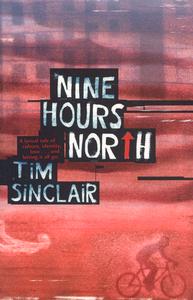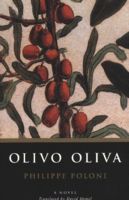
Nine hours north of everything I knew, of all my life that's made sense so far . . . Things stopped making sense from the moment Adam arrived in Japan - the conservative job, the shoebox apartment and the growing weight of his relationship with Sarah.
By the time Marianne arrives, he's been battery-caged for so long it all seems normal - but then she changes everything . . .
A bittersweet novel about finding the strength to move forward.
Nine hours north has just been released this February, published by Penguin and I must confess to be very excited about this book, not only because I know the author (albeit tangentially) as he is the son of my 1st year Biology lecturer *and* the husband of a dear friend of mine who I went to HS with, but also because it's the debut novel by a young Australian - Adelaidean no less!, AND because it's a verse novel. Remember Vickram Seth's 'The Golden Gate' or Matt Rubenstein's 'Solstice' or Dorothy Porter's wonderful 'The Monkey's Mask' and 'What a piece of work'?? Great verse novels, in a genre which is slimly populated but satisfying to read.
I think it's incredibly brave to be a writer, and even more brave to be a poet. Poetry! Who does that these days, when everything is meant to be useful and contribute to production of bright and shiny things that you can eat or wear or drive or renovate? For that reason alone I am committed to buying the work of contemporary poets / poetic fiction (I just made that genre up) writers - good to support the dreamers, so we remember how to dream.
Anyway, this book is set in Japan, characters are early twenties Australians teaching English as part of a youthful adventure away from home post-uni. They are in a relationship but things are getting weary. Captures those few years (longer??) when the acting out of a working life feels like playing dress ups, it can be done with irony, it is still so new, and uni life still feels so close. When you just know that you will never wear a suit and be old and be boring. The interesting thing about their relationship is that they seem to be developing quite different attitudes to their life, about what is important and how to live it.
I must confess that parts were uncomfortable reading for me in terms of candid insight into the mind of a male partner who is increasingly dissatisfied a few years into a relationship - I think I was a bit defensive about his judgement about Sarah. I did also wonder if it was going to be a 2-D 'my girlfriend's so boring I need a wild adventure' story - but it wasn't, it didn't end up being this, the characters fleshed out with much more realistic too-ings and fro-ings of feeling. It effectively built up tension as you wonder what will happen to topple the domestic order. It rolls along, with cycling becoming a theme of the book - Adam and Sarah united in their use of bikes for commuting to work and also as the mode of travel they choose for their long-planned touring holiday around Japan.
Definitely worth a read, and may especially apppeal to those who are into bikes, who have had a 'coming of age' relationship, have visited Japan, who have been confused about their feelings for someone, and who like wry, simply stated poetry. Proof that poetry doesn't have to be abstract and fey and hard to access. Buy a copy! Give a copy to a friend! :)
Authors website
